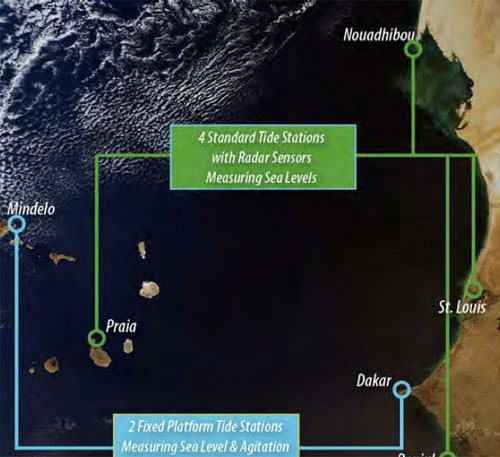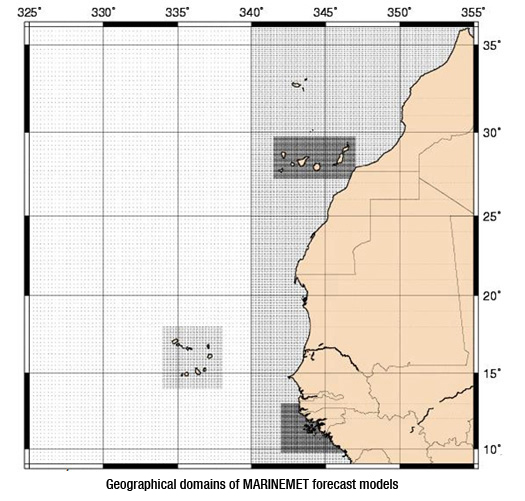MARINEMET: New equipment installed

The combined Tide Gauges and Automatic Weather Stations, and the independent Automatic Weather Stations (AWSs) planned in the last phase of the MARINEMET Pilot Project (http://www.afrimet.org/marinemet/index.php/en/documents/doc_download/27-tor-pilot-project) have been acquired and installed (SUTRON corporation) in the beneficiary countries:
|
|
Tide gauges + AWSs |
Independent |
|
Senegal |
1 fixed platform tide station measuring sea level and agitation and AWS 1 standard tide station and AWS |
0 |
|
Mauritania |
1 standard tide station and AWS |
2 |
|
Cape Vert |
1 fixed platform tide station measuring sea level and agitation and AWS 1 standard tide station and AWS |
1 |
|
The Gambia |
1 standard tide station and AWS |
1 |
In the near future, the data of these equipments will be available at www.afrimet.org/marinemet/
MARINEMET improvements
Taking into account the suggestions received, the following changes have been introduced in the MARINEMET website (http://www.afrimet.org/marinemet/):
- Loop of images (animation) for the deep sea water modelling products
- Improvement of the availability of the real time remote sensing products (6-7 hours earlier than before)
- Improvement of the availability of the deep sea water modelling products (1 hour earlier than before)
- Correction of errors in the display of the columns in the deep sea water modelling products (the last column on the right didn't appear)
We hope these improvements are useful for you.
West Africa Marine Meteorology Project
MARINEMET Pilot Project was a follow-up of the Las Palmas Action Plan and was supported in the framework of the Spanish cooperation in close collaboration with WMO. It was launched in Dakar (Senegal) in July, 2009. Senegal, The Gambia, Mauritania and Cape Vert are the countries involved in it. The project will contribute to the needs expressed by the countries in the region to improve marine meteorological services for maritime safety and fisheries management.
MARINEMET’s main philosophy is both technology and knowledge transfer, with the aim of helping the countries become autonomous by the time the pilot project (which lasts for four years) is completed. Therefore, new equipment and different types of training provision are aspects of the project which are under consideration.
The Spanish State-owned Ports Body (Organismo Público Puertos del Estado) and the Las Palmas de Gran Canaria University (ULPGC) are working in collaboration with the Spanish Meteorological Agency (Agencia Estatal de Meteorología) on the project.





